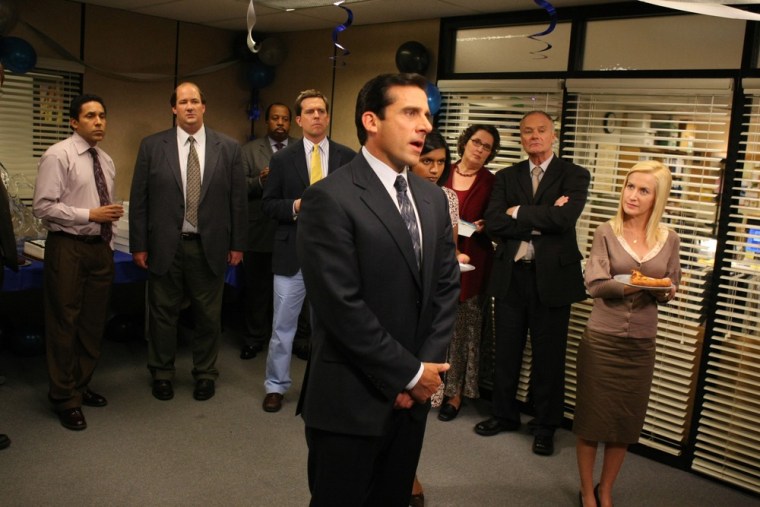There's a reason certain episodes of "The Office" or "Curb Your Enthusiasm" -- or those painful audition episodes of "American Idol" -- make you so uncomfortable. A team of European scientists has uncovered a neural explanation for vicarious embarrassment, that cringe-inducing phenomenon of feeling embarrassed for someone.
Whether Michael Scott, the boss of the fictional paper company in "The Office" (or -- even worse -- his British counterpart David Brent), realizes he's humiliating himself or not, observing his awkward moments activates the region of our brains that processes empathy. That's what's making us squirm, according to the study, published this week in the journal PLoS ONE.
In one experiment, the researchers used functional magnetic resonance imaging to examine the brain's "pain matrix" -- the anterior cingulate cortex and the anterior insula -- while the 619 participants read a series of vignettes describing embarrassing moments. (Yes, that "pain matrix" is the area that processes actual, physical pain, but previous research has shown that this is where social pain, including empathy, is felt, too.) Protagonists in the vignettes slipped in mud, walked around with their fly open, burped loudly in a fancy restaurant and wore T-shirts bragging about their sexual prowess. In other words, some realized they were being ridiculous, while others did not.
"Vicarious embarrassment was experienced regardless of whether the observed protagonist acted accidentally or intentionally and was aware or unaware that he/she was in an embarrassing situation," write the study authors, led by Sören Krach and Frieder M. Paulus from Philipps-University Marburg, Germany.
Video: Will Ferrell ready for work at "The Office"
The participants were also asked to rate how embarrassed they would feel if they were in the person's position -- and also whether they were feeling chagrined for that person -- and then took another survey intended to rate the participants' empathy. Not surprisingly, empathetic folks were more likely to experience secondhand embarrassment, proving what we already suspected: If you can't stand to watch deluded reality show contestants humiliate themselves on national TV, it's because you are just such an incredibly nice person.
By the way: We are delighted to report that there is a German word for this very specific feeling: "Fremdscham." It's the emotional mirror of the more-familiar German word: "Schadenfreude," the pleasure we sometimes feel from the misfortune of others.
Can you hardly sit through an episode of the British or American versions of "The Office"? Did you have to leave the room all those years ago when William Hung made his "American Idol" debut? Tell us your favorite example of experiencing secondhand embarrassment. (Or should we say,"fremdscham.")
You can find The Body Odd on Facebook, and follow Melissa Dahl @melissadahl.
